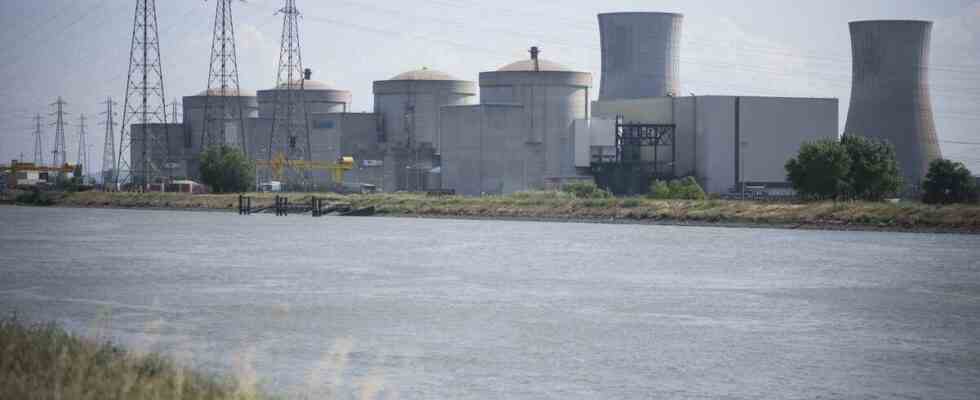Have incidents at the Tricastin nuclear power plant (Drôme) been concealed? An investigating judge from Marseille is carrying out investigations around suspicions of “obstructing the control of investigators” and “endangering others”, after the accusations of a former EDF executive working at the commissioned plant in 1980 and 1981 and which is one of the oldest in France. 20 minutes make the point.
What is this investigation opened on the Tricastin plant?
Judicial information against X was recently opened at the Marseille Public Health Center, targeting a dozen violations of the Penal Code and the Environmental Code for events that occurred at the Triscastin nuclear power plant from the beginning of 2017 to the end of 2021. Among them “non-declaration of an incident or accident”, “endangering others”, “forgery and use of forgery”, “discharge into water by manifestly deliberate violation of an obligation of care of a substance causing harmful effects”, “obstructing the control of nuclear safety inspectors” or “moral harassment”.
The opening of this investigation comes at a time when EDF is facing serious corrosion problems in its nuclear fleet. To date, 12 reactors out of 56 are shut down for a proven or suspected “stress corrosion” (SCC) phenomenon, according to a last situation update detailed by the group on May 19.
What is the origin of the case?
In October 2021 and in the midst of a debate on the place of nuclear power in France that Emmanuel Macron wishes to increase, “Hugo” (assumed first name), a former executive of the power station who has since requested the status of whistleblower, had filed a simple complaint against EDF and members of his hierarchy, accusing them of having placardized him for having denounced a “policy of concealment” of security incidents in recent years.
According to his complaint, various anomalies – such as overpowering of reactor n°1 in June 2017 or internal flooding on August 29, 2018 on unit n°3 – were not reported to the Nuclear Safety Authority ( ASN) or would have been so as to “minimize the events”. Joining EDF in 2004, Hugo became head of service at Tricastin in September 2016. But quickly, according to his complaint, the climate turned out to be “particularly tense, in view of the ten-year inspection”, a decisive step in obtaining authorization for continue operating beyond forty years. “A number of incidents within the plant took place, contributing to the deterioration of relations” between Hugo and his superior, according to the complaint.
What are the reactions?
Immediately entrusting the investigations to an examining magistrate “translates the extreme gravity of the facts denounced by our client, who had alerted his employer and warned the Ministry of Ecology in vain”, reacted the lawyers of Hugo, Vincent Brengarth and William Bourdon. “The opening of a judicial investigation for such qualifications, against a leading economic operator, constitutes an exceptional decision”, they believe.
The Nuclear Safety Authority (ASN) did not react immediately, but in November, Christophe Quintin, ASN chief inspector, had affirmed that the inspections at the Tricastin plant had “not led to observe events that would have been masked”. According to him, there could be “internal arbitration at the plant” on incident reports.
Today awaiting assignment, Hugo says he is still “passionate about nuclear power”. “This fight has reinforced my will to fight for the safety of the installations, which contributes directly to the protection of populations and the planet”, he believes. Asked, EDF declined to comment.

